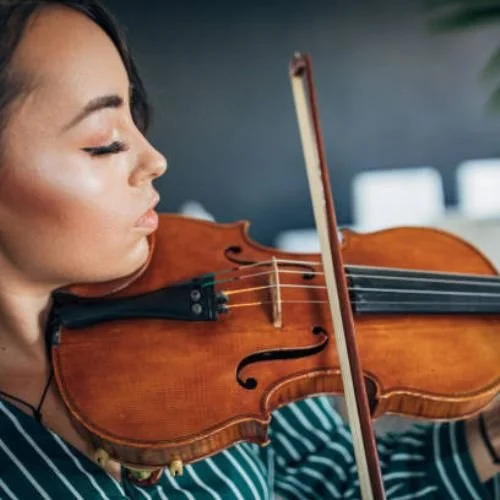Why Do Some Players and Singers Close Their Eyes When They Perform?
Have you ever watched a musician or singer so deeply immersed in their performance that they close their eyes, seemingly lost in the music? This instinctive act isn’t just for show—it’s a raw, unfiltered response to the deep emotional and technical demands of making music.
1. Emotional Depth: Feeling Every Note
Music is more than sound; it’s an emotional language. When musicians close their eyes, they are tuning in to the emotional essence of the piece. It allows them to internalize the music, drawing from personal experiences, memories, or pure artistic interpretation. For vocalists, this means embodying the story behind the lyrics, while instrumentalists might channel the mood of a melody with greater sensitivity. Closing their eyes helps strip away external distractions, making space for authentic emotional expression.
2. Heightened Focus and Technical Mastery
Performing music requires intense concentration. By eliminating visual input, musicians rely more on their aural and tactile senses. Pianists feel the weight of each key, violinists anticipate the resistance of the bow, and singers connect deeply with their breath and resonance. This sensory shift enhances precision, allowing musicians to focus on the subtleties of tone, phrasing, and dynamics without external interruptions.
3. Enhanced Musical Expression and Flow
Music is an organic, flowing experience. Closing the eyes can help musicians surrender to the rhythm and phrasing, allowing their interpretation to feel more instinctive and fluid. Without the constraints of visual engagement, they can let the music dictate movement, phrasing, and expression naturally. This often results in performances that feel more soulful and deeply connected.
4. Managing Performance Anxiety
Even the most seasoned performers experience nerves. Closing their eyes can create a sense of solitude, a personal musical space that removes the pressure of an audience’s gaze. This technique helps musicians ground themselves, regain composure, and immerse in the performance rather than the expectations of those watching. It’s a way to transform stage anxiety into a meditative, controlled experience.
5. Entering a State of Musical Flow
Psychologists refer to a phenomenon called "flow"—a mental state where time feels suspended, and a person is fully absorbed in an activity. Many musicians close their eyes instinctively when they reach this peak state of engagement. In these moments, the music seems to play itself, and the artist becomes a vessel for pure musical expression.
More Than a Habit—A Sign of True Immersion
The next time you watch a musician with their eyes closed, know that you’re witnessing something special. It’s a sign of deep connection, mastery, and vulnerability—a moment where music transcends performance and becomes pure expression.
Closing your eyes while playing isn’t a skill you force—it’s something that happens when the music becomes a part of you. With enough practice, your hands will no longer search for the notes; they will remember. Your heart will no longer follow the rhythm; it will lead.
If you’re ready to reach that level of connection with your instrument, we’re here to guide you.
Fill out the form below, and let’s talk.




